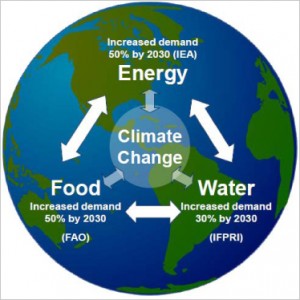 On November 4, 2014, American citizens are going to re-elect their representatives in Congress, where all 435 seats at the House and 33 out of 100 seats at the Senate will be up for grabs. Currently Republican Party controls the US House; 232 Republican seats, 201 Democrat seats, 2 vacancies; and Democratic Party, 53 Democrats, 45 Republicans, and 2 Independents control the Senate. In the Senate, Republicans need to gain six seats to obtain majority; in the House, Democrats need to get that much desired 218th seat in order to gain control. Given current political climate in the country, the upcoming elections are of great importance.
On November 4, 2014, American citizens are going to re-elect their representatives in Congress, where all 435 seats at the House and 33 out of 100 seats at the Senate will be up for grabs. Currently Republican Party controls the US House; 232 Republican seats, 201 Democrat seats, 2 vacancies; and Democratic Party, 53 Democrats, 45 Republicans, and 2 Independents control the Senate. In the Senate, Republicans need to gain six seats to obtain majority; in the House, Democrats need to get that much desired 218th seat in order to gain control. Given current political climate in the country, the upcoming elections are of great importance.
It is not a secret that many American citizens are disillusioned by the course the government has taken: for example, 2013 annual job approval rate for Congress of 14 percent was the lowest since Gallup started taking the poll in 1974. Similarly, Obama’s job approval rate was only mere 40 percent in December 2013. Divided nature of Congress—where Republican Party controls the House and Democrats control the Senate—is often to blame for inefficacy of American government. Practically every initiative proposed by either party is met with opposition from its political counterpart. The situation clearly manifested itself in October 2013 when the government shutdown over Obamacare showed that both political parties are predominantly driven by their ideologies instead of constructive concern for the well being and progress of the whole country.
Consequently, the 2014 elections will be instrumental in ensuring that Congress, instead of being torn by bipartisan bickering, might at last become productive and effective. As such, it is imperative that American people vote and unequivocally tell their government what is expected of it. However, therein lays a big problem. Special interests, big money, and powerful corporations, thus effectively shutting down the voices of ordinary citizens, contaminate political campaigns in the USA. In January 2010, Supreme Court’s 5-4 ruling in Citizens United vs. Federal Election Commission has declared that corporate political spending does not affect political representatives and has given corporations, labor unions, and other influential groups the same rights as to individuals to spend their money on political campaigns, including TV commercials, print advertisement, and such. Now, the big companies have means to effectively buy political campaigns and elected officials in order to promote policies advantageous to their corporate interests.
Moreover, American media is highly consolidated. For example, today, six major companies (Comcast, Disney, News Corporation, Viacom, Time Warner, and CBS) control most of the media in the USA, thus effectively managing what kind of information is available to people. The same goes for cable, radio, and Internet, —which for all their seeming diversity—are in fact owned and controlled by just few large corporations. According to Common Cause Initiative, since 1990, the entertainment industry, including television, motion picture companies, music industry, etc., has put $283.5 million into federal elections. And in 2008-2010, about the same amount was spent by the industry on lobbying. In fact, Telecommunication Act of 1996, which lifted the limits of ownership, has had an opposite effect by allowing rich and powerful corporations to monopolize. As such, political ads, which run on TV, radio, and other media outlets, are often financed by big money and fail to provide unbiased views and diverse opinions.
It is of utmost importance to have access to true information regarding who, why, and how influences and finances political candidates and their campaigns. 2014 elections are fast approaching and American people need to act quickly.










